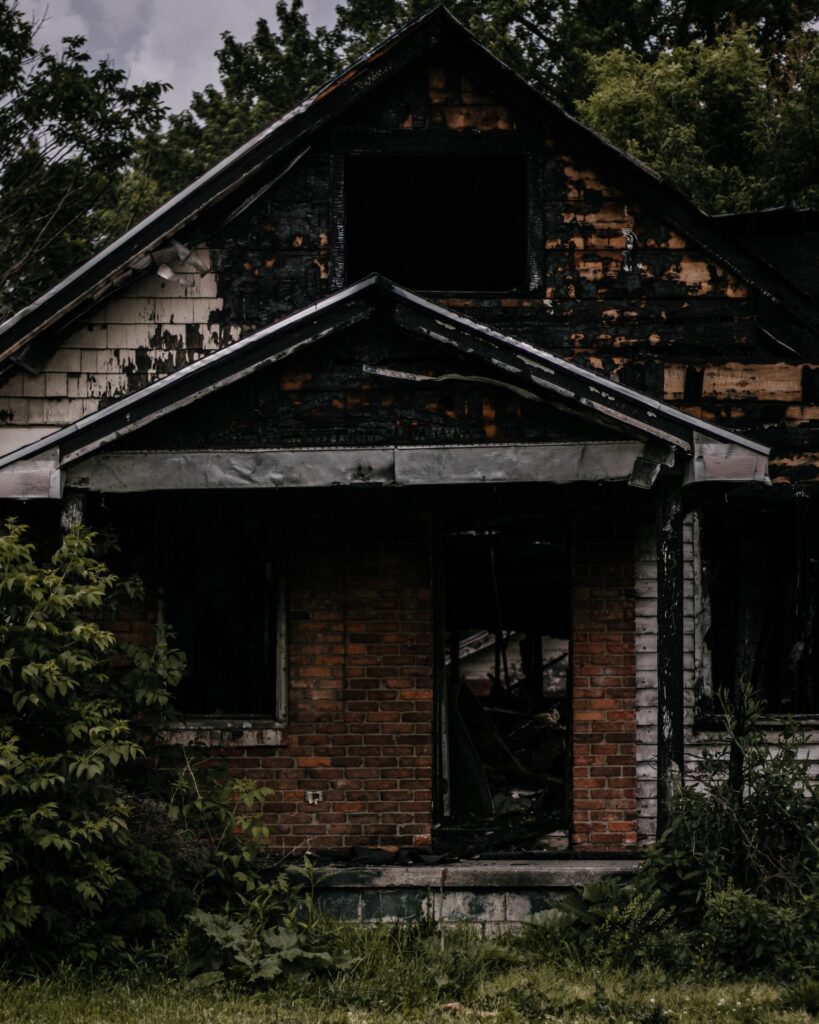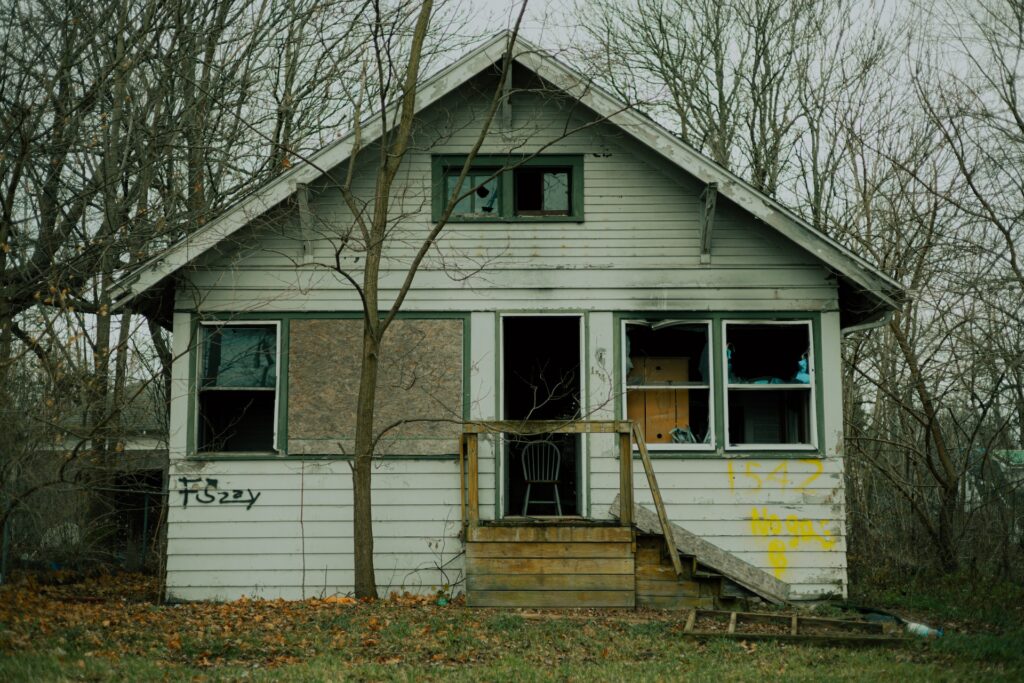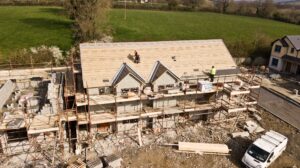
The Importance of Permit Expediters in Substandard Housing
If you own a property in California, any housing on the property must be maintained to ensure it doesn’t fall into disrepair. Having a messy house isn’t going to cause problems with the local and state governments. However, you may encounter issues if your home is either outdated or unattractive.
When housing poses a risk to the safety, physical well-being, and health of neighbors, occupants, or visitors, it’s considered substandard. In the event that you own substandard housing, you could face numerous penalties unless you make the necessary repairs and get the home or apartment into a livable condition. Consider requesting assistance from permit expediters to more effectively resolve these issues. The following is an in-depth guide on substandard housing and the role that permit expediters have when you attempt to improve your housing.

What is Substandard Housing?
According to the Uniform Housing Code and the state housing laws, substandard housing refers to any residential home or apartment building that’s in such a bad state that it endangers the property, welfare, safety, life, or limb of the general public or people who currently live there.
If you notice substandard housing on another person’s property, the issue should be reported immediately to a local or state housing authority. A few examples of substandard housing include structural hazards, fire hazards, and poor sanitation. All issues that cause substandard housing are fixable, which is why you should take measures to correct these problems as soon as you identify them.
Causes of Substandard Housing
There are many reasons why housing becomes substandard over an extended period of time, the most common of which is a lack of proper maintenance and repairs. During a heavy thunderstorm, a window could be broken. If it isn’t repaired quickly, the damage to the housing could worsen significantly and may eventually lead to poor living conditions. Not making necessary repairs can also result in hazards being created.
Another common cause of substandard housing involves landlord neglect or a disregard for tenant safety. Some landlords are satisfied with simply collecting monthly rent checks and not taking steps to make sure that the property maintains livable conditions. Eventually, the issues could become severe enough that the housing is deemed substandard.
There may also be a high demand for low-cost housing in the area, which could lead to exploitation. Buyers could enter into a deal because they don’t have a large sum of money but want to live in a house instead of an apartment. Regardless of the reason, any housing that’s considered to be substandard needs to be fixed to make sure that penalties aren’t assessed.

Effects of Substandard Housing
There are many harmful effects of substandard housing, the majority of which could create health issues for anyone who lives there or happens to walk in the property. Some of the more common health hazards that occur in substandard housing include pests, mold, and exposure to toxins.
Physical deterioration of the home is usually among the primary factors that contributes to substandard housing. For instance, a house might require a new roof. If it rains in the near future, the roof could be weak enough that it leaks or caves in, which increases the possibility of flooding. In this scenario, residents could be injured.
When a house floods, additional hazards will occur, some of which aren’t as visible as others. The most common safety hazards that present themselves when a home floods include gas leaks, rusting pipes, and outdated electrical systems. Some of these issues can go unnoticed until accidents occur. Two additional problems that are difficult to detect include asbestos and radon, both of which can cause severe health issues.
While a collapsing floor or roof is one of the more dangerous possibilities in substandard housing, this type of housing also causes undue amounts of financial burden and emotional stress on current tenants. If a landlord doesn’t address these concerns, they could face serious penalties.
Legal Remedies for Substandard Housing
When the Substandard Housing Program or California Health and Safety Code receives a complaint about substandard housing, they will start a case to ensure that the complaint is thoroughly investigated. If violations of housing law or health and safety codes are identified and are considered to be priority violations, the case is then forwarded directly to someone in the area who can perform an inspection within the next three days.
If the violation isn’t viewed as a priority violation, the property owner will be sent a warning letter. In this letter, the owner or property manager is given 30 days to make the necessary repairs that will allow the home or apartment to lose its substandard status. After the 30 days has passed, the complainant might receive a call from the local authorities to verify if the complaint has been addressed.
If the property owner hasn’t made the necessary repairs, they will then be sent a Notice of Violation, which means that an inspection will shortly take place to determine how much work needs to be done. The owner is tasked with paying the costs pertaining to these inspections. If violations continue to occur, administrative penalties could be assessed.
There are times when owners are simply unable to make repairs to their homes on a reasonable timetable, which can lead to worsening health and legal issues. For instance, local governments often condemn substandard housing and may tell the landlord or owner that no one can live in the apartment or home until it’s been fixed. If the property owner doesn’t have the ability to make the fixes that are requested of them, the public housing authority may be able to provide assistance. A local HUD office can provide help as well.
If you want to avoid the penalties that come with violating housing laws, it’s highly recommended that you request the services of a permit expediter. An expediter understands all of the local housing guidelines and health and safety regulations, which means that they will help you make sure that the housing you own is safe and compliant with all of the applicable regulations. By retaining the services of a permit expediter, you can make the right repairs and correct any damage on the property before additional penalties are assessed.

Importance of Permit Expediters
Permit expediters play a role in many aspects of the housing industry. For instance, an expediter often helps developers and property owners obtain the necessary building permits to construct a home or make renovations. They’ll also help prevent substandard housing issues by making sure that a newly constructed home or apartment building is compliant with local building codes and regulations before it’s even built.
The main benefit of requesting the help of a permit expediter is that you’ll be able to avoid all types of situations where substandard housing might affect you. If you’re getting ready to build a new home, having a permit expediter on hand reduces the possibility that a safety hazard will accidentally occur during the construction process.
Since it’s possible for substandard housing to be condemned, you should make an effort to fix any problems in your home or apartment building before receiving a letter from the local housing authority. As a property owner, maintaining the property’s condition will also allow you to maintain its value.

Prevention of Substandard Housing
There are several things you can do to prevent substandard housing. As a tenant, state law requires landlords to comply with all local building codes and to make sure that their properties are kept in a safe and habitable condition. If the home that you live in is in disrepair, you should contact your landlord with a complaint in writing.
In the event that your landlord doesn’t make the required repairs within 30 days, you can perform these repairs on your own and deduct the expenses from your rent. Even if your landlord doesn’t agree, this measure is allowed by state law. Keep in mind, however, that the repairs need to be less than a single month’s rent. If the repairs are proving to be too costly, consider getting in touch with the local rent board. If a home is uninhabitable, the lease could be voided. There’s also a possibility that there would be grounds for you to file a lawsuit.
If you’re searching for affordable housing, check out the resources at this link. Consider taking part in community organizing and advocacy for tenant rights. Non-profit organizations like Tenants Together help renters fight for their rights.
Conclusion
Because of the strict penalties associated with substandard housing and the serious health issues that can result when housing isn’t in great condition, it’s important to prevent substandard housing before it develops. The easiest way to prevent these issues is by regularly performing maintenance and obtaining repairs as needed.
Landlords, tenants, and property managers need to prioritize safe and compliant housing. If you’re unsure of the standards that must be met for safe housing, a permit expediter can help you navigate this issue and identify areas of concern that can be quickly addressed.

Jason Somers, President & Founder of Crest Real Estate
With over 15 years of professional experience in the Los Angeles luxury real estate market, Jason Somers has the background, judgement and track record to provide an unparalleled level of real estate services. His widespread knowledge helps clients identify and acquire income producing properties and value-ad development opportunities.
Learn more about Jason Somers or contact us.



